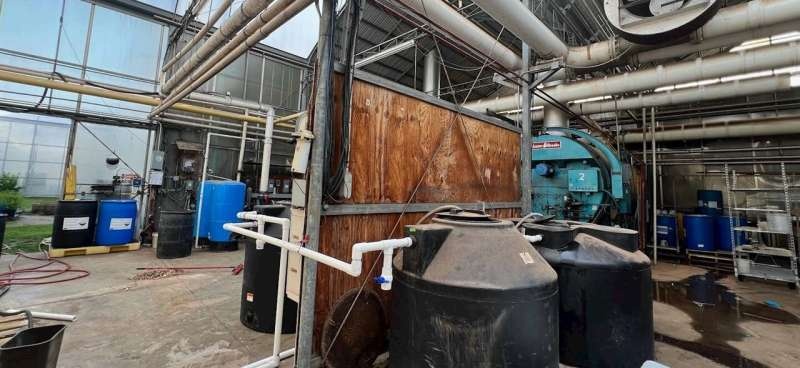Explore the groundbreaking research by Michigan State University’s Professor Tom Fernandez, who has developed innovative strategies to increase water and nutrient-use efficiency in greenhouses and nurseries, while also reducing environmental impact.

Improving Water and Nutrient Efficiency
Professor Tom Fernandez has spent more than 25 years researching water management of greenhouses and nurseries. They have discovered new methods, that can decrease the amount of water used in agriculture by 30-80% and also some ways to minimize runoff (e.g., nitrates and phosphates).
So Fernandez has discovered that growers using as much water as a plant uses in one day can save up to 50 percent of their water use, and improve nutrient movement through the potting mix. His research has also focused on reducing pesticide movement from the soil and non-target areas, leading to water contamination. Fernandez has demonstrated a considerable potential for decreasing the surface runoff of pesticides by just means of micro-irrigation techniques, like spray stakes.
Bioreactors are the Future of Water Treatment
Fernadez, who added that he and his colleagues are also researching the using of bio-reactors to treat greenhouse and nursery production run-off water. Thanks to their success at removing nutrients and pesticides from the water, these bioreactors — essentially large tubs filled with wood chips — have become a key component in state-led efforts to improve water quality.
The two-stage bioreactor system, initially developed by Fernandez, can remove greater than 95% nitrates and 80-87% phosphates from the water. On the other hand, to meet the requirements of today’s greenhouses and nurseries that work with closed-loop water systems, Fernandez and his team have developed bioreactor technology even more.
Fernandez and his team are currently recycling 90–100% of the nutrients in the warm water, which allows them to be re-used for production, by adjusting the bioreactor so that water flows more rapidly. In addition to destruction, up to 30-75% of the total pesticides in water can be stripped off by this bioreactor depending on the mobility of each pesticide.
This unique approach to water management not only saves valuable water resources, but also is crucial in environmental stewardship for greenhouses and nurseries as it helps eliminate the discharge of nutrients and pesticides in nearby ecosystems.
Conclusion
Research by Professor Tom Fernandez and his team at Michigan State University is paving the way for new water and nutrient management techniques in greenhouses and nurseries. Through designing trialed systems for improved water and nutrient-use efficiency, along with cutting-edge bioreactor technology for water treatment and recycling, they are working towards economic solutions that directly assist in mitigating worries centered around crop-production growth management by supporting good water quality practices within the horticulture sector. They not just help the farmers, but also have a larger impact on the society by cutting down stress on water resources and saving the environment.
